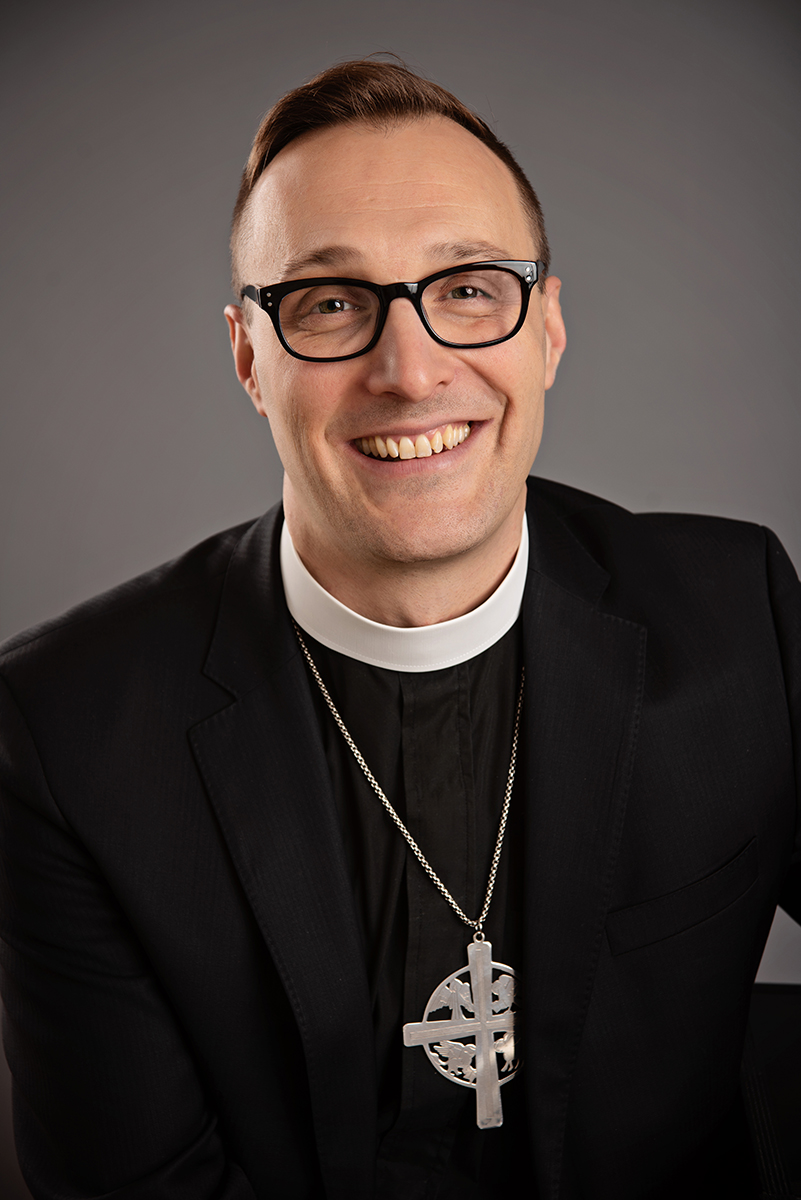A Faithful Summer

Rev. David Haberstock.
by David Haberstock
Summer is upon us, and before a recent camping trip with my family, I was limping toward summer holidays like a teacher in the last week of school.
Summer is a time for rest and renewing relationships with far-flung family and friends for pastors and parishioners alike. But with all that travel comes the question: when away from home, how will you be fed spiritually? Just because you are away from your fridge and kitchen doesn’t mean you stop eating. Similarly, there are dire consequences if you stop being spiritually fed.
Before you go, take a few minutes to search for places where the faithful gather to be fed God’s Word and the blessed Sacraments of Christ our Lord. When my family travels we always spend time thinking about where we’ll be, budgets, and if there are special restaurants or foods we want to have. (We’re hoping to have some good barbeque in Kansas City this summer!) In the same way, I always spend a bit of time online searching for local Lutheran Church–Canada (LCC) or Lutheran Church—Missouri Synod congregations where I am going.
Take a few minutes to search for places where the faithful gather to be fed God’s Word and the blessed Sacraments of Christ our Lord.
When attending churches you don’t know, there are a few considerations. First, is there even a LCC congregation near where you are going? If you don’t know, Google it or use the “Find a Congregation” feature on lutheranchurchcanada.ca (or, if you’re travelling in the United States, on lcms.org). Once you find a congregation, spend some time on their website to make sure you know when and where service is so you can be sure to fit it into your schedule.
Often their communion schedule is listed and you’ll be able to figure out if they are receiving our Lord’s holy body and blood that day. If so, do yourself and the pastor the favour of calling or emailing ahead, or showing up early to introduce yourself to the pastor to ask if you can commune. This is actually an expectation that we have for ourselves in LCC—that you would introduce yourself, what congregation you are a member of, and announce your desire to commune to the pastor of the church you visit. (Did you know that in the early Church you didn’t commune outside your own church without a letter from your pastor to the pastor of the church you were going?) It makes everything easier for all involved, as the pastor then knows who you are (he may even remember your name at the communion rail) and can commune you knowing that you receive the sacrament worthily and not to your harm (see 1 Corinthians 11:27-32). Every congregation does things a little differently and the pastor can then inform you about things at this congregation.
If there is no LCC congregation near you and you choose to attend a church belonging to another denomination, be aware that every church body has its own confession of faith. This means that a “church” or a “communion” is united by its shared confession of doctrine. And as Scripture says, “How good and how pleasant it is when brothers dwell together in unity!” (Psalm 133:1). This is also why there are different church bodies, because not all churches teach the same thing.
Therefore, when you partake of communion at a church, you are not merely coming into union with God through the body and blood of Christ but with all of the fellow Christians at that table. Your attendance at an altar declares that you are in full unity with those Christians around you. If you commune in a Roman Catholic church, then, you are saying you believe that the Pope is the head of the Church on earth, a higher authority than Holy Scripture. Or if you commune at a United Church congregation, you say you are in full agreement with everything they have taught about sexuality for the last decades. By communing in a Baptist church, you confess that the body and blood of Christ are not present in, with, and under the bread and wine of the Lord’s Supper—that the bread and wine are only a memorial of something that once happened. Rather than confessing things you do not believe, you may wish to speak with the pastor beforehand to note you are visiting from another church tradition and, while unable to commune, wish them sincere good wishes in Christ.
When you partake of communion at a church, you are not merely coming into union with God through the body and blood of Christ but with all of the fellow Christians at that table. Your attendance at an altar declares that you are in full unity with those Christians around you.
If you happen to be camping or away from a church all together, you can still hear the Word of God on your phone through sources like your church’s website or the Lutheran Hour Ministries app.
Wherever you are this summer I pray that God’s Word of truth strengthens you in the forgiveness of your sins, granting you life and salvation.
———————
Rev. David Haberstock is the Central Regional Pastor for Lutheran Church–Canada.





